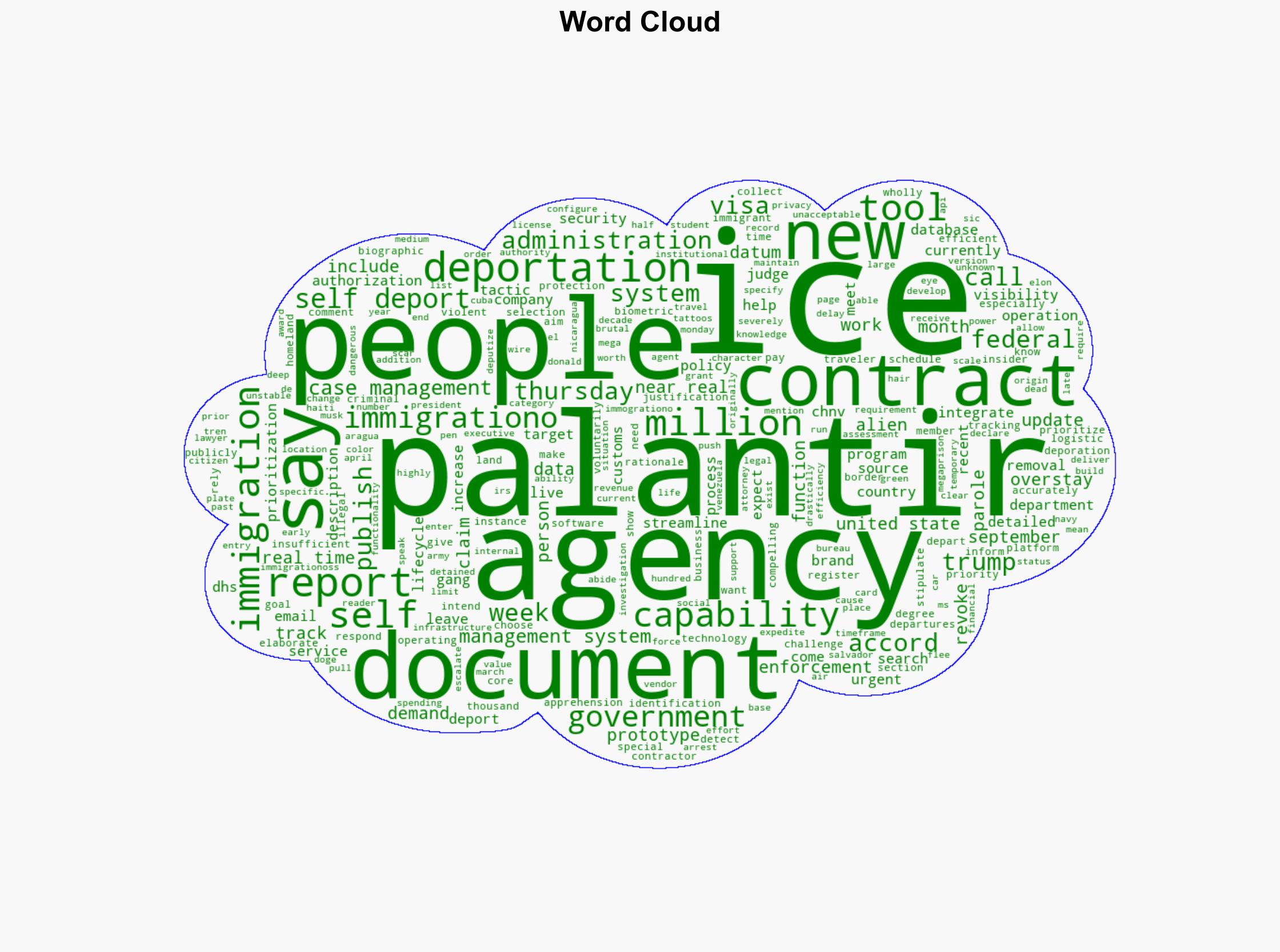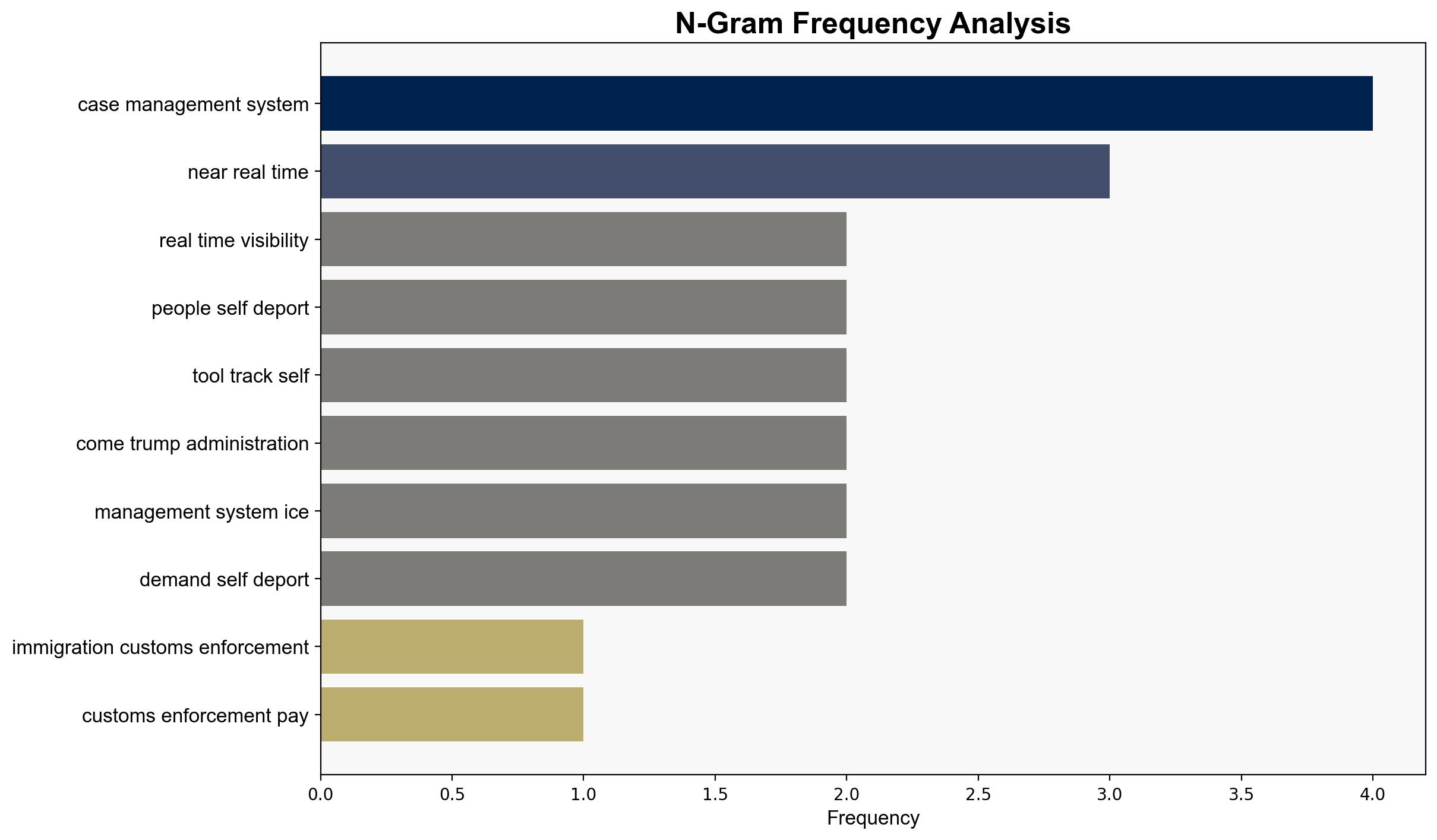ICE Is Paying Palantir 30 Million to Build ImmigrationOS Surveillance Platform – Wired
Published on: 2025-04-18
Intelligence Report: ICE Is Paying Palantir 30 Million to Build ImmigrationOS Surveillance Platform – Wired
1. BLUF (Bottom Line Up Front)
Immigration and Customs Enforcement (ICE) has contracted Palantir for $30 million to develop the Immigration Lifecycle Operating System (ImmigrationOS), aimed at enhancing deportation processes and tracking self-deportation in near real-time. This initiative is driven by an urgent need to improve enforcement prioritization and deportation logistics. The strategic recommendation is to closely monitor the development and implementation of ImmigrationOS to assess its impact on immigration policy and civil liberties.
2. Detailed Analysis
The following structured analytic techniques have been applied:
SWOT Analysis
Strengths: Enhanced capability for ICE to prioritize and streamline deportation processes. Improved data integration for enforcement prioritization.
Weaknesses: Potential reliance on self-reported data, which may affect accuracy. Insufficient technology for detecting visa overstays.
Opportunities: Development of a comprehensive system to manage immigration processes more efficiently. Potential to inform policy decisions with integrated data.
Threats: Privacy concerns and potential backlash from civil rights groups. Risk of data misuse or breaches.
Cross-Impact Matrix
The implementation of ImmigrationOS could influence immigration policies in neighboring regions, potentially leading to increased scrutiny and similar technological adoptions. Changes in U.S. immigration enforcement may affect bilateral relations with countries of origin for immigrants.
Scenario Generation
Scenario 1: Successful implementation leads to more efficient deportation processes, reducing visa overstays and illegal immigration.
Scenario 2: Privacy concerns lead to legal challenges and public protests, delaying or altering the implementation of ImmigrationOS.
Scenario 3: Technological failures or data inaccuracies result in policy shifts or reconsideration of the system’s scope.
3. Implications and Strategic Risks
The deployment of ImmigrationOS presents potential security risks related to data privacy and civil liberties. The system’s effectiveness in accurately tracking and prioritizing deportations will be critical. Political implications include potential shifts in immigration policy and public perception. Economic impacts may arise from changes in workforce demographics due to increased deportations.
4. Recommendations and Outlook
- Conduct regular audits of ImmigrationOS to ensure data integrity and compliance with privacy standards.
- Engage with civil rights groups to address potential concerns and foster transparency.
- Develop contingency plans for scenarios involving legal challenges or technological failures.
- Monitor geopolitical impacts on U.S. relationships with immigrant-origin countries.
5. Key Individuals and Entities
Palantir, Immigration and Customs Enforcement (ICE), Department of Homeland Security, Customs and Border Protection.





